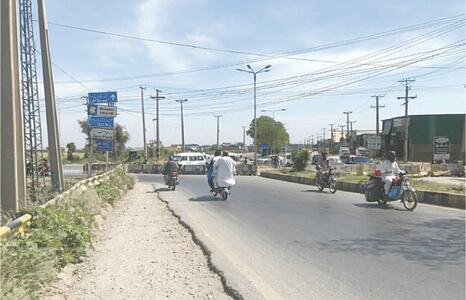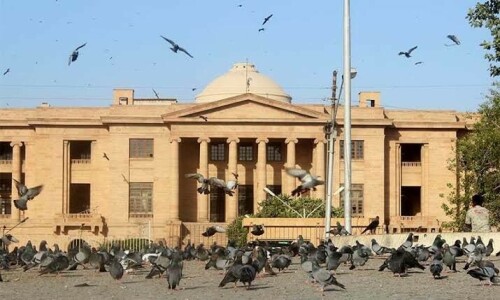
CHAKWAL: In a first of its kind, the Chakwal Forest Division, while making the most of paragliding, has managed to disperse 20,000 seed balls with the help of paragliders who carried out the seed bombing at Aara Forest Reserve on August 13 and 14.
“Although throwing seed balls is a popular practice in plantations, throwing seed balls through paragliders was the maiden experience in the country,” Divisional Forest Officer Sadheer Ahmed Mughal told Dawn.
The drive was inaugurated by the Chakwal deputy commissioner and as many as fifteen paragliders from the Pakistan Hand Gliding and Paragliding Association (PHPA) took part in it.
Chakwal has 167,000 acres of forest area and a major chunk of this woodland falls in the jagged Salt Range, which also remained in the headlines for multiple forest fires over the past summer.
“As the most mountainous area is inaccessible for humans, we opted for paragliding to throw seed balls,” Mr Mughal said while talking about the novelty of the idea. He said the germination rate of seed balls was 80pc, which made them ideal for the purpose. “Due to higher germination rate, seed balls are the best method to grow the forest cover,” he said, adding that 20,000 seed balls were prepared by the workers of the Forest Department using soil, compost and coal.
“Seed can be stored in seed balls for a longer time. If it does not rain for a certain period, the seeds preserved in these balls do not die,” he explained. The 20,000 seed bombs contained 100,000 seeds – five seeds of five different plants in each ball.
The forest official explained that the seed balls contained seeds of Kikar (acacia nilotica), Phulahi (acacia modesta), Shareen (albizia lebbeck), Sanatha (dodonaea visosa) and Amaltas (cassia fistula or golden shower tree).
“Kikar, Phulahi, Santha and Shareen are the natives of the area and are prevalent in the Salt Range whereas we used Amaltas for the first time as an experiment. “If the experiment of Amaltas turns out to be successful, these plants would add to the mesmerising beauty of the Salt Range due to their golden flowers,” he added.
The paragliders who took part in the initiative said they were proud to be a part of this unique plantation drive. They added that paragliding was their passion and they would use this passion to turn the country greener by throwing seed balls.
Meanwhile, Mr Mughal said that as many as 175,000 saplings of different plants had been planted in Chakwal during the ongoing season. “This is the official figure which does not include the saplings planted by the private sectors,” he said, claiming that the public was participating in the ongoing plantation drive for the first time.
Published in Dawn, August 18th, 2024













































